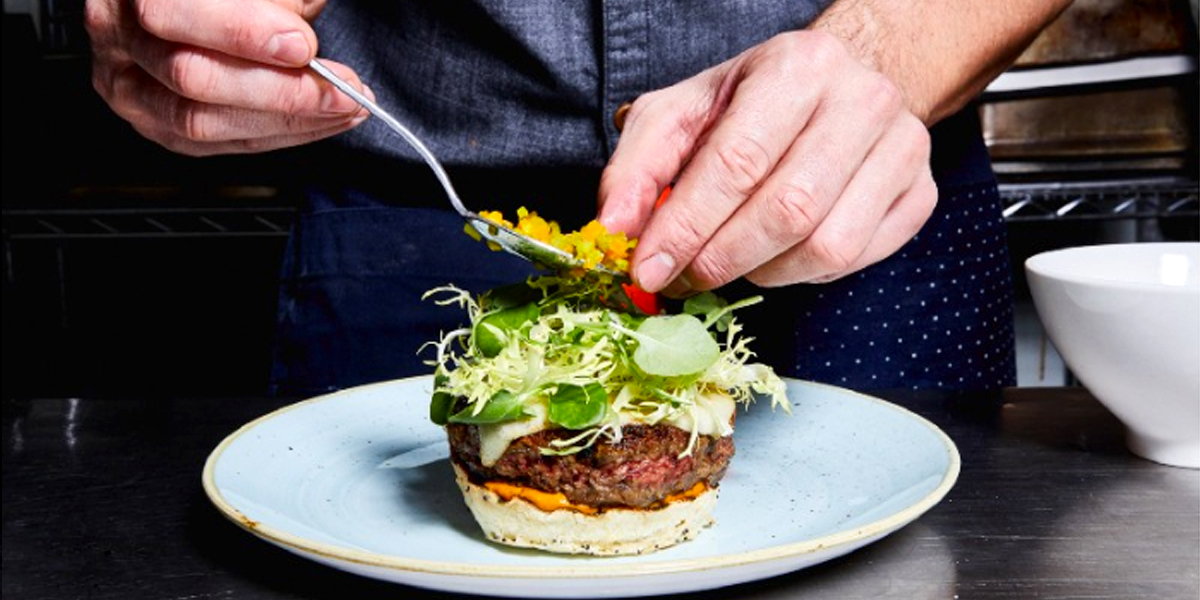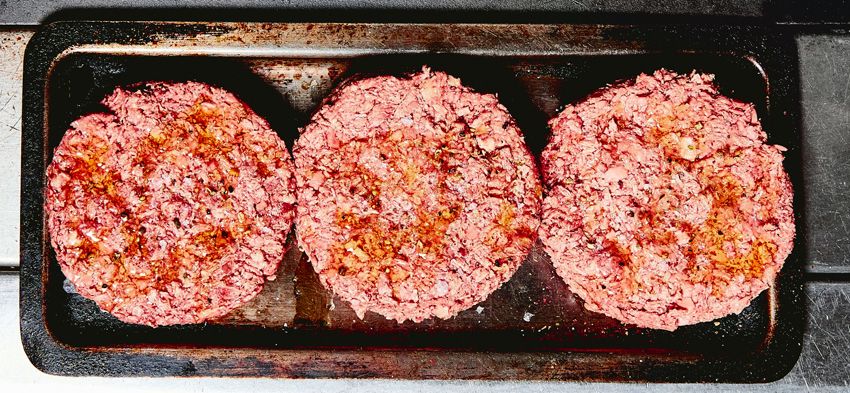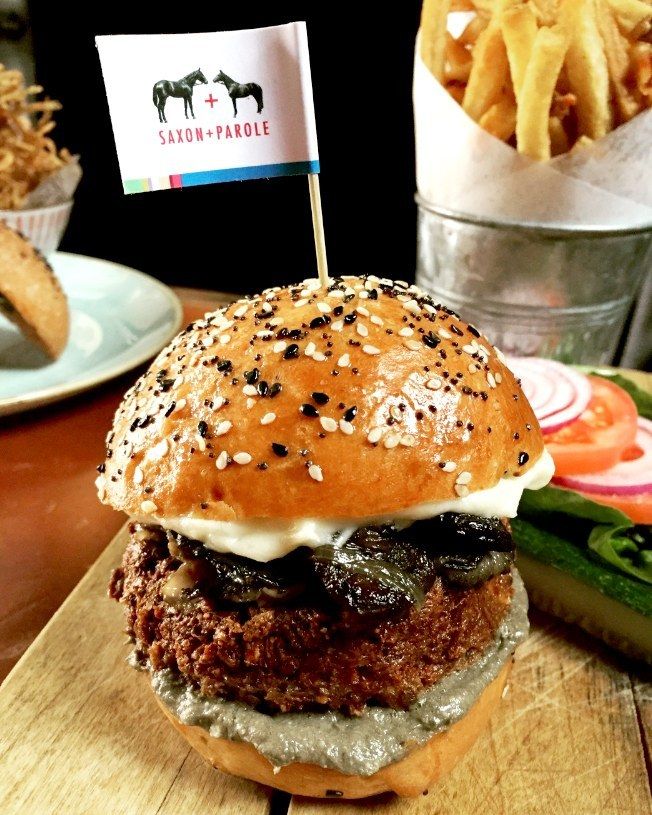

By Lauren Wolahan
Behold the Impossible Burger, the plant-based indulgence that looks, cooks, smells and tastes just like meat, but without the environmental price tag. The no-meat treat emerged onto the food scene in 2016, when it debuted at restaurants in Manhattan, Los Angeles and San Francisco.
[facebook https://www.facebook.com/EcoWatch/videos/1447831798563086/ expand=1]
“I think the natural assumption people make is that because we’ve basically made a food that looks and tastes and cooks and smells just like meat from a cow … that there must be some kind of sketchy business going on,” said Pat Brown, CEO and founder of Impossible Foods, which makes the Impossible Burger. “But, in fact, there was a lot of work that went into figuring out in detail what it took to make something that delivered all the sensory pleasures of meat using plant ingredients.”
Recently welcomed onto the menus of Chef Brad Farmerie’s Michelin-starred restaurants Public and Saxon + Parole, the Impossible Burger has solidified its place at the cutting edge of both gastronomy and sustainability. At a panel hosted at Public, Farmerie described the Burger as a “gateway drug” into alternative protein, offering his patrons the chance to enjoy a new treat that represents an “incredible flip on what we can do for our world.”

Impossible Foods is developing the whole gamut of traditionally animal-sourced meats, from fish to bacon. Brown said the decision to start with a plant-based burger was a no-brainer. The burger is an iconic American food and beef production has the biggest environmental impact of the foods we eat. The all-plant patty sends a clear message, he said, that “the best meats in the world don’t have to come from animals.”
Our food choices have a huge environmental impact. Livestock production accounts for a third of global cropland, pollutes water and air, and almost 15 percent of man-made greenhouse gases. Among farm animals, cattle are the biggest culprits, accounting for the large majority of livestock-related greenhouse gas emissions. Demand for meat and dairy is set to skyrocket in the years to come.
https://twitter.com/climatehawk1/status/712349904262209540
Experts disagree on the best approach to shrinking the environmental impact of food production. Agricultural purists are deploying low-impact farming practices that reduce pollution, build healthy soils, and scrub carbon from the atmosphere. Agri-tech companies, on the other hand, are using advanced tools to increase yield crops and convert livestock waste to biogas. Some are even feeding seaweed to cows so that they burp less methane.
Many environmental advocates say we should look beyond the farm and try to change the way we eat—consuming more plants and less meat—as a way to combat climate change.

Asking people to change how they eat is a thorny subject. There are personal and cultural barriers to eating less meat. But Brown says we can protect the planet without asking people to sacrifice a beloved food by developing tasty, plant-based alternatives to meat. The Impossible Burger requires using 95 percent less land and generates 87 percent fewer greenhouse gas emissions than a beef patty.
“Because we’re constantly improving it, we’re discovering fundamental things about how to make delicious meat flavor from simple plant ingredients and discovering new ways to make it better and better and better all the time,” said Brown.
“This is how I know that we are going to succeed in our mission,” he added. “As soon as we’re kind of running even with the cow, the race is over, because the cow’s not going to get any faster and we are—every single day.”

 233k
233k  41k
41k  Subscribe
Subscribe 